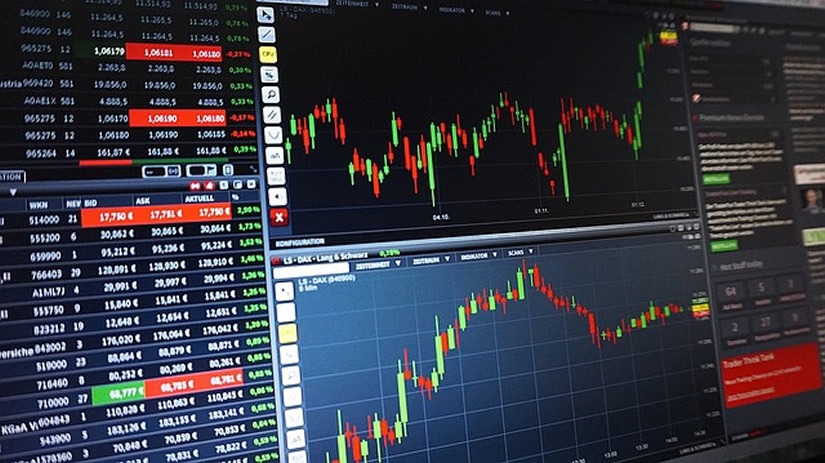By Orbex
– The general turnaround in risk sentiment this week has largely been attributed to the latest studies pointing to the omicron variant being less virulent than prior variants.
But what also gave the market a push early on Monday was the PBOC cutting their Reserve Requirement Ratio, or triple-R. That saw the start of the rally in markets in Asia. And it has some interesting effects on commodity currencies in particular.
Unlike other central banks which regulate policy through interest rates, the PBOC uses their RRR facility to maintain the monetary policy. Cutting reserve requirements is equivalent to monetary policy easing.
Usually, these moves come as a surprise to the market, since the PBOC doesn’t make these decisions as part of regular meetings. Nonetheless, the situation in China was such that most of the market was already expecting it.
Things aren’t getting better yet
The RRR cut was equivalent to injecting CNY1.2T into the Chinese financial system. The central bank followed up with a further cut directed specifically towards SMEs.
Free Reports:
 Download Our Metatrader 4 Indicators – Put Our Free MetaTrader 4 Custom Indicators on your charts when you join our Weekly Newsletter
Download Our Metatrader 4 Indicators – Put Our Free MetaTrader 4 Custom Indicators on your charts when you join our Weekly Newsletter
 Get our Weekly Commitment of Traders Reports - See where the biggest traders (Hedge Funds and Commercial Hedgers) are positioned in the futures markets on a weekly basis.
Get our Weekly Commitment of Traders Reports - See where the biggest traders (Hedge Funds and Commercial Hedgers) are positioned in the futures markets on a weekly basis.
However, they stressed that this isn’t more “easing”. Analysts expected that response, given the constraints on lending due to the housing crisis.
Throughout Monday and Tuesday, we also got reports from major Chinese construction firms on their contracted sales data. They all reported a dramatic drop in housing sales.
Evergrande, for example, saw sales dropping almost by 60%, compared to the same period last year. Sunshine 100 saw the most dramatic results, with their November sales dropping well over 90% compared to last year.
More money, but at what price?
More and more Chinese builders warn they won’t be able to make payments (the latest being Aoyuan Property Group, with monthly sales in excess of CNY7.0B). So the credit situation in China remains tight. This means that the PBOC will likely need to continue to provide liquidity injections.
On another note, China reports inflation data tomorrow. Analysts project the annual November China CPI change to come in at 2.5%. That is a dramatic increase from the 1.5% recorded in October and it would be the highest rate since July of last year.
Therefore, the PBOC is forced to increase liquidity while inflation is already on the rise, suggesting that there isn’t a stopgap for inflation moving higher.
Back to normal might not be such a good thing
Inflation in China was on the rise before the pandemic, breaking above the annual 5.0% in January of last year. Then the subsequent recession naturally cut inflation back. But it has been creeping higher all this year, as the world economy moves back to normal.
During the pandemic, the Chinese government provided ample stimulus to the economy which contributed to the run-up in raw material prices. It would be surprising if China didn’t have a run-up in inflation just like the rest of the world.
Nonetheless, given the housing situation, the PBOC could be in a very uncomfortable position to do something about it, unlike other central banks.
Higher inflation might imply a weaker yuan over the coming months. With less purchasing power, Chinese firms might lose their appetite for commodities. Also, the AUD and NZD might finally run out of steam and could react negatively to increased inflation in China.
 Article by Orbex
Article by Orbex
Orbex is a fully licensed broker that was established in 2011. Founded with a mission to serve its traders responsibly and provides traders with access to the world’s largest and most liquid financial markets. www.orbex.com

- Target Thursdays: NAS100, Robusta Coffee, USDCHF Apr 25, 2024
- QCOM wants to create competition in the AI chip market. Hong Kong index hits five-month high Apr 25, 2024
- Japanese yen hits all-time low as BoJ meeting commences Apr 25, 2024
- TSLA shares rose on a weak report. Inflationary pressures are easing in Australia Apr 24, 2024
- USDJPY: On intervention watch Apr 24, 2024
- Euro gains against the dollar amid mixed economic signals Apr 24, 2024
- PMI data is the focus of investors’ attention today. Turkey, Iraq, Qatar, and UAE signed a transportation agreement Apr 23, 2024
- Australian dollar rises on strong economic indicators Apr 23, 2024
- Geopolitical risks in the Middle East are declining. China kept interest rates at lows Apr 22, 2024
- Brent crude dips to four-week low amid easing geopolitical tensions Apr 22, 2024
